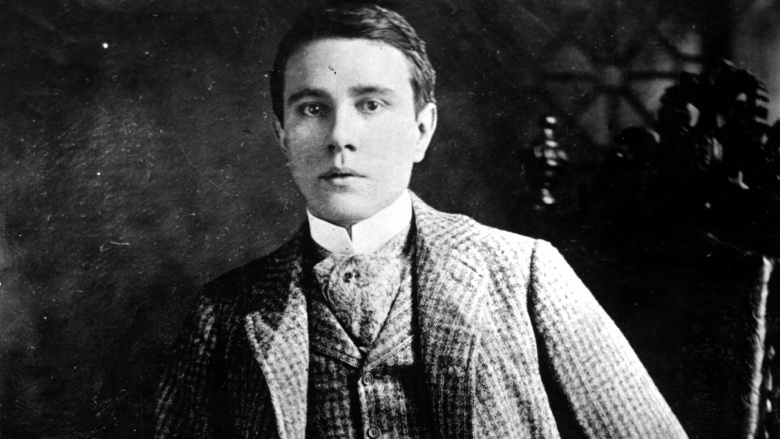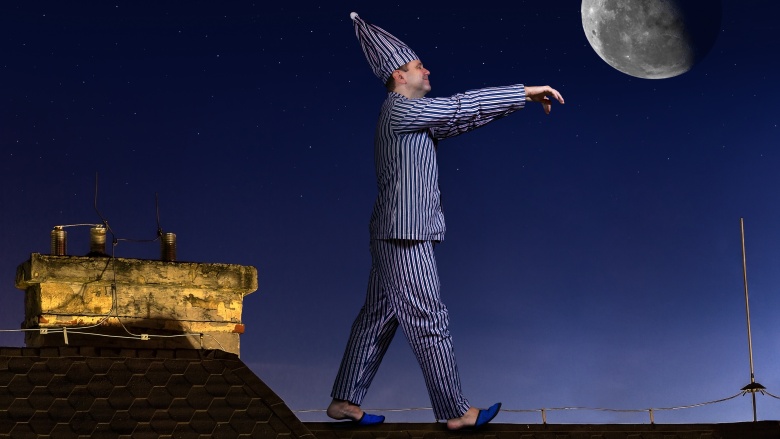The Craziest Criminal Defenses That Actually Worked
Hollywood has taught us all that the easiest way to get out of prison time is to plead insanity. Of course, it's not as simple as that, and there can be some rather creative roads taken to make an insanity defense work. Because of the complexities of the legal system in the United States and other similar nations, attorneys often need to come up with elaborate (and often ridiculous) defenses for their clients. Whether or not a person is guilty or innocent rarely comes into play once a lawyer decides to go with a film-inspired insanity plea... or worse. The following are some of the most ridiculous legal defenses that actually worked.
Matrix defense
One of the fun aspects of The Matrix movies is to let yourself imagine that just maybe, we really are all in the Matrix. That's sort of the point—you wouldn't really know if you were, would you? (We hope it's true. It would explain a lot.) Believe it or not, some attorneys have used that very defense in trying to get people off for murder.
Tonda Lynn Ansley thought it best to shoot her landlady in the head several times back in July 2002, before that landlady could begin brainwashing her. She was successfully found not guilty by reason of insanity after her legal defense team convinced the jury that she perceived the world as a virtual reality similar to that of the Matrix film franchise. "They commit a lot of crimes in 'The Matrix,'" Ansley allegedly told police. "That's where you go to sleep at night and they drug you and take you somewhere else and then they bring you back and put you in bed and, when you wake up, you think that it's a bad dream." Finding no motive or rational explanation for the murder, Ansley was found incompetent to stand trial. A San Francisco man was also successful in his bid for an insanity verdict, claiming he thought he had been in the Matrix when he cut his landlady to pieces. (The moral of the story: be careful who you rent to.)
The defense was also used for Joshua Cooke after he decided it was necessary to take a shotgun (similar to the one Keanu Reeves used in the franchise) and kill his parents with it. It didn't work for him, and he was sentenced to 40 years. The idea is a sort of updated version of the formerly-used Taxi Driver defense, attributed to John Hinckley for his attempted assassination of President Ronald Reagan. Hinkley claimed he was so influenced by the film, he thought killing Reagan would entice Jodie Foster to fall for him. The defense worked and he was declared insane.
Chewbacca defense
You may remember the Chewbacca defense from an episode of South Park, which aired all the way back in 1998. The episode spoofed the OJ Simpson murder trial, and even featured famed attorney, Johnnie Cochran, as the defense attorney in the show. Without getting into too many details about the episode, Cochran used the film series Star Wars to successfully convince a jury that the defense was the wronged party. He ended up getting a $2 million judgement issued against the plaintiff.
You might be scratching your head, trying to figure out just what an episode of South Park has to do with a real legal defense... and wondering how you can avoid these types of lawyers. The satirical nature of the show and the title of Chewbacca defense were inspired by a real legal strategy called ignoratio elenchi, which is Latin for "irrelevant conclusion." In legal terms, this basically means that a defense is concocted for the sole purpose of confusing the jury and making no sense, and you've heard of it being used in the OJ Simpson trial. When the real Johnnie Cochran created an elaborate story around the evidence of the glove (and even had his client try it on with rubber gloves on underneath), he cast doubt on his client's guilt with the saying, "If it doesn't fit, you must acquit!"
A similar term is red herring, which is anything that is used to distract from the important issues at hand. Cochran was able to cast doubt on his client's guilt despite the otherwise overwhelming evidence against him by making it all about the gloves, and it worked.
Twinkie defense
A Twinkie defense is pretty much any defense where the accused blames something else for making them commit murder. This has been used countles times over the years, where people have blamed everything from video games to those delicious, cream-filled snacks we all love to hate: Twinkies. Sort of.
The term was coined by the press to mock the legal defense strategy used in trial of Dan White in 1978. White assassinated two prominent members of the gay rights community in San Francisco, killing both Harvey Milk, the city's first openly gay politician, and George Moscone, the pro-gay rights mayor. White's attorneys concocted a defense where they blamed his untreated depression and diminished capacity to distinguish right and wrong for the murders. They claimed that his switch to eating nothing but junk food was a symptom of his depression, but the press just heard this part and they ran with it. The news outlets the next day all spoke of the Twinkie defense and how ridiculous it sounded, though the term was never actually used during the trial.
White's attorneys failed in getting him off for the murders and he ended up with a conviction of two counts of voluntary manslaughter. It still sort of worked, though, as the jury did end up buying the Twinkie defense and were unable to deliver a guilty verdict suggesting malice aforethought. Without this, they could only sentence him to eight years under California law. The idea of the Twinkie defense stuck around, probably because it sounds admittedly awesome.
Gay panic defense
There's victim blaming, and then there's victim blaming. The gay panic defense is the latter one. Whenever this defense is invoked, it's because someone reacted violently towards another person because of their sexual orientation. Essentially, the assailant claims that they panicked when they learned the victim was gay and instead of simply walking away, they brutally murdered them. The gay panic defense almost never works, and the American Bar Association is considering a nationwide ban so that it can no longer be used in courts in the United States. It was successfully used at least once in New Zealand.
While on vacation to Auckland, New Zealand, a Hungarian tourist named Ferdinand Ambach killed Ronald Brown. He hit the man with a banjo and then shoved the instrument's neck down his throat. The 69-year-old died several days later after being removed from life support. Ambach was charged with murder, but thanks to the successful argument of the gay panic defense made by his attorney, the charge was dropped to manslaughter. They argued that Ambach was provoked into a fury when the victim made unwanted sexual advances toward him. He was sentenced to only 12 years and served eight. When he was released, New Zealand kindly deported him back to Hungary, wanting nothing more to do with him.
Dementia Americana
These days, the term "brainstorm", has a fairly benign connotation. It tends to mean you sit down and come up with occasionally brilliant ideas, but back in 1907, it had a far more nefarious meaning. The term was first used in the criminal defense of Harry Thaw, who was on trial for the murder of prominent architect Stanford White. Thaw shot White on the roof of Madison Square Garden in a fit of jealousy resulting from an affair White had with Thaw's wife... three years prior. Thaw had a history of mental illness and this was tapped to help get him off for the grisly murder. A defense witness testified that he, "Observed a nervous agitation and restlessness, such as comes from a severe brain storm, and is common in persons who have recently gone through an explosive or fulminating condition of mental unsoundness."
The defense went with what they called Dementia Americana, which was explained in the defense attorney's summation, "That is the species of insanity which makes every American man believe his home to be sacred; that is the species of insanity which makes him believe the honor of his daughter is sacred; that is the species of insanity which makes him believe the honor of his wife is sacred." He further went on to describe what would essentially become the basis for the current Stand Your Ground laws used throughout the United States—suggesting a form of unique American temporary insanity linked with the protection of one's home. In Thaw's case, he was declared to have gone temporarily insane in the defense of his wife's sacred chastity. You might have a hard time getting away with that these days.
Fantasy defense
Have you ever fantasized about murdering someone? Your boss perhaps? You can tell us, we're good at keeping secrets! Seriously though, most of us fantasize about all kinds of things, even murder... but very few people would ever go through with anything so horrific. Murder is one thing, but the fantasy defense was concocted for something even more unthinkable. A fantasy defense is used when a monster... we mean, person, is charged with attempting to solicit sexual activity from a child. They claim that they never intended to go through with the act and it was only a fantasy. In some cases, they claim their fantasy never involved a child at all, and they believed themselves to be dealing with an adult pretending to be a minor.
Former Disney executive, Patrick Naughton, was charged with soliciting sex from a minor in 1999 when his attorneys came up with the defense. He flew on a private Disney jet from Seattle to Los Angeles to meet with a blonde-haired 13-year-old girl whom he had instructed to do some horrible things in his hotel room. Unbeknownst to him, the young lady awaiting him was actually (and thankfully) a federal agent. He was arrested. His bizarre version of the fantasy defense claimed that he believed he was participating in sexual role-playing while dealing with an adult woman who would only pretend to be an underage girl.
The defense worked and the jury was unable to come to a verdict, but he did make a deal with the FBI. He got five years probation (including nine months home detention), and was hit with a $20,000 fine. That's getting off too easy.
Affluenza defense
Remember Harry Thaw from the Dementia Americana piece? What we didn't tell you was Mr. Thaw was an extremely wealthy individual, and this might have helped him escape justice from his less-murderous indiscretions over the years. Nobody could ever suggest that the wealthy aren't responsible for their actions even if they kill someone, right? Right?
Sadly, that's not the case. Take Ethan Couch. He was just a teenager in 2013 when he drove drunk without a license and plowed into a group of people standing beside a stalled SUV. Nine people were badly injured and four were killed in the crash. Seems pretty straightforward, doesn't it? Wrap it up, and home for dinner? Well, his defense team actually convinced a judge that Couch was so coddled in his youth and so wealthy, he couldn't possibly understand the consequences of his actions due to his financial privilege. He was given a suspended sentence and probation. Unthinkable? For sure, and his team wasn't the first one to argue "affluenza" as a legal defense.
All the way back in 1924, Nathan Leopold and Richard Loeb confessed to the murder of a 14-year-old boy stating their reason was "just because." Famed attorney Clarence Darrow (from the Scopes Monkey Trial) successfully argued that the pair were raised by a governess and their upbringing was stunted. He even argued that the sheltered lives the men lived made them victims as well. They were both convicted, but spared the death penalty thanks to Darrow's creative defense strategy.
Sleepwalking defense
Sometimes referred to as violent sleepwalking, the sleepwalking defense is pretty much exactly what it sounds like. How could you be guilty of committing a crime when you aren't even conscious while doing it? That's the question put before a jury in the case of Joseph Anthony Mitchell. Back in 2015, he was on trial for the murder of his own child.
While sleepwalking through his home, Mitchell found and strangled to death his 4-year-old son before trying to do the same to his other two children. He claimed that his ongoing financial distress at the time was contributing to poor sleep habits. The defense was able to get an expert witness to testify that he was suffering from "non-REM parasomnia," which is a sleep disorder that causes people to perform random acts while sound asleep. Because of the disorder, it was argued, he was not capable of exercising any criminal intent. The jury had asked the judge if they could deliver a verdict of manslaughter in the death, but their only option was guilty of murder or not guilty. He was found not guilty.
Mitchell's case was by no means the first of its kind. Back in 1846, Albert Tirrell was acquitted of murdering a prostitute in Boston after he slit the woman's throat. Somehow, his attorney was able to convince a jury that he was a chronic sleepwalker and was not conscious when he nearly decapitated a woman, set fire to the brothel, and then fled to New Orleans. As bizarre as that is, Tirrell's case represents the first known use of the sleepwalking defense in the United States. Does your significant other sleepwalk? Or rather... do they just tell you they do? They might be queueing up a defense.
Evil twin defense
It turns out that this one isn't just a trope for soap operas, and claiming that your evil twin committed the crime and insisting upon your innocence has actually worked in a court of law. R. Sathis Raj and his identical twin brother, Sabarish Raj, were wrapped up in a legal nightmare in Malaysia back in 2003. One of the twins was arrested and charged with trafficking 166 kilos of cannabis and 1.7 kilos of raw opium. While still on the scene, the second twin showed up and was also arrested. Only one of the brothers had the keys to the house (and the drugs), but by the time they got to court no one had the slightest idea who was who, which was which, or who was which.
Because the two men were physically identical down to their DNA, the judge refused to hear the case and even said she wouldn't risk sentencing an innocent man to death. "Although one of them must be called to enter a defense, I can't be calling the wrong twin to enter his defense. I also can't be sending the wrong person to the gallows." It turns out that truth really can be stranger than fiction.









